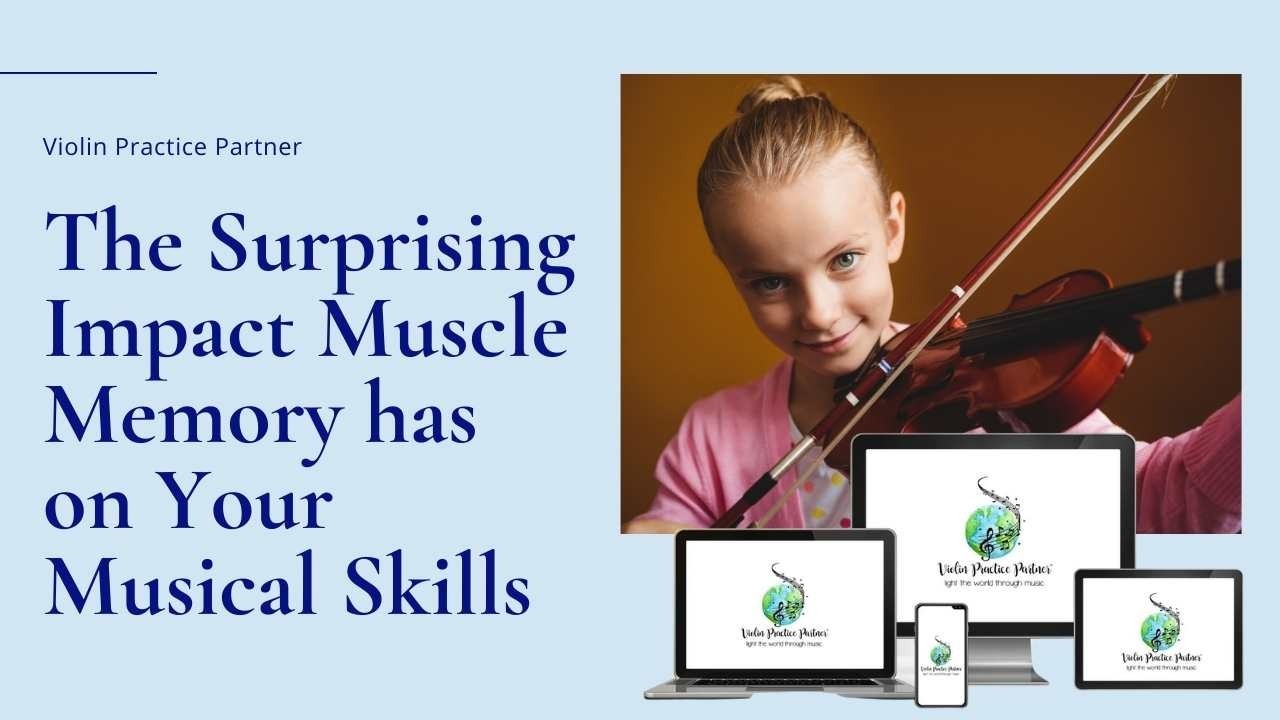The Surprising Impact Muscle Memory has on Your Musical Skills

“Muscle memory” is a term that’s often used in a figurative sense to refer to something as a reflex, but have you ever wondered where that term originated? Today I wanted to share about what muscle memory is in a literal sense, and show the wonderful role it plays when it comes to playing the violin.
Hi, I'm Melodie with the Violin Practice Partner, and I've been teaching violin for 25 years. It's my mission to help light the world through music by helping children learn to play the violin, while also gaining confidence, learning important life skills, and improving their academic achievement.
Many of the basic elements of playing the violin revolve around developing muscle memory. For example, learning how to get the bow to produce the right sound or getting the pitch just right can actually be credited to muscle memory!
- What is muscle memory?
Whether you know it or not, we use muscle memory every day when we walk, type, ride a bike, or play an instrument. We train our muscles by repeating an action over and over until the brain develops a memory.
As we repetitively practice to learn a new activity, our brains are learning a pattern, and then teaching it to our muscles. That’s why daily practice is so important when you’re starting to learn a new instrument.
- Practice actions slowly
As a beginner, it’s important to make sure you are practicing slowly. The slower practice lets the brain better control the movements of the muscles. Even though it may seem backward to you, the muscles will develop memory sooner the slower and more precise your movements are.
- Use a small set of notes
Use small sets of notes to practice. Practicing in these small sections limits the information the muscles learn at one time. This helps the brain focus and concentrate on those muscles. To ensure continuum through the piece of music, make sure you follow each small set by the first action of the next set.
- Stop immediately when you make a mistake
If you make an error while practicing, stop immediately and think through what you did wrong and how to make it right. Then start again. It takes more work to change a pattern your body has already adapted to than to get it right the first time.
- Take breaks and do not over-practice
As you’re repeating your actions to learn a section of your music, your mind can better focus if you take a short pause between each time you practice it. Make sure to take a longer break after you’ve been practicing. Research shows that concentrating too long can deplete chemicals in the brain necessary for learning. So take breaks, and make sure you’re aren’t practicing for hours at a time.
Thank you for taking the time to develop your skills at the violin! If you’d like a free copy of my practice guide, click here.

